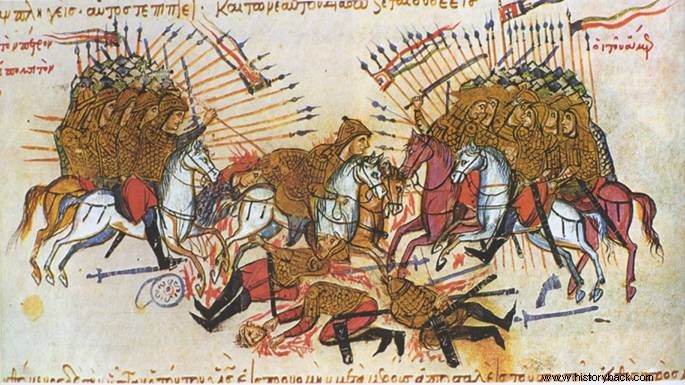
The Stratigikon attributed to Emperor Maurice (539-602 AD) is one of the most important military writings of all time. Such a timeless work is naturally still applicable today, despite the fact that Cavalry have been replaced by state-of-the-art tanks.
Mauritius, a military man himself, had developed a special relationship with the military. In his work he ends up with certain teachings, which even today should constitute the golden book of every officer.
The emperor, you first refer to the relations between men and administration. He makes special mention of the behavior that the leader must display towards his men, in order to win the respect of his subordinates and to ensure their loyalty and willing execution of his orders.
First of all, according to Mauritius, the leader must fully share the hardships of his men. He must eat the same meal and set an example for men himself. Finally, Mauritius mentions a list of military "positions" - he mentions them as gnomikas - some of which will be cited in order to understand the Byzantine-Greek strategic thinking, which is so misunderstood by many.
The bravery and class of the fighters are important and not their number.
Few are of natural prowess. Training is what makes a soldier useful.
The general who, after his victory, pursues the enemy unorganized, surrenders the victory to his opponents.
The general who does not adequately supply and feed the army needs no enemies to be defeated.
It is the fault of the general to achieve "expensive" victories in blood.
The general must suffer more hardships than his men, in war, and to receive the least of the booty.
The general who seeks luxury brings ruin to his army.
It is not enough for a general to command well, he must also foresee.
We do not choose the battlefield only according to the composition of the army we have, but also according to the opponent we are facing.. Whatever place is chosen to fight, it must first be recognized by the army, so that they know men the land and to exploit it.
A general leading an army into battle must look happy so that the morale of the men is raised.
From the above, the conclusion can certainly be drawn that the Byzantines were deep scholars of military history, from which they drew their lessons, but also of the psychology of men. They had developed their own strategic thinking, adapting old lessons to their modern circumstances. When the Byzantine generals were worthy of their mission and followed the proper practices they never failed.
